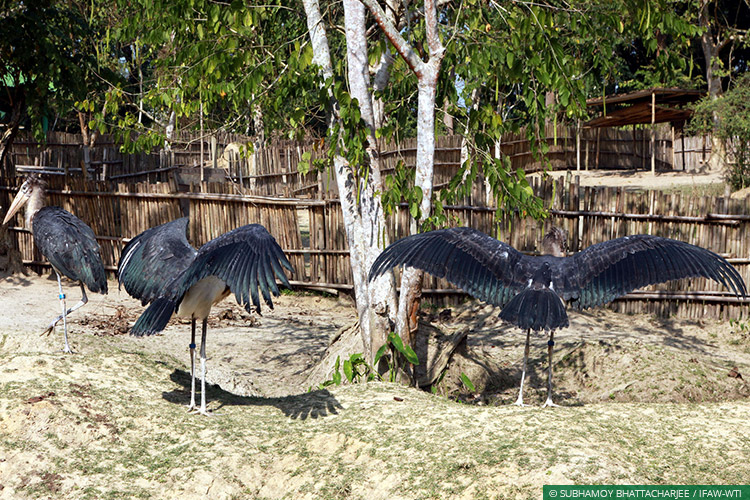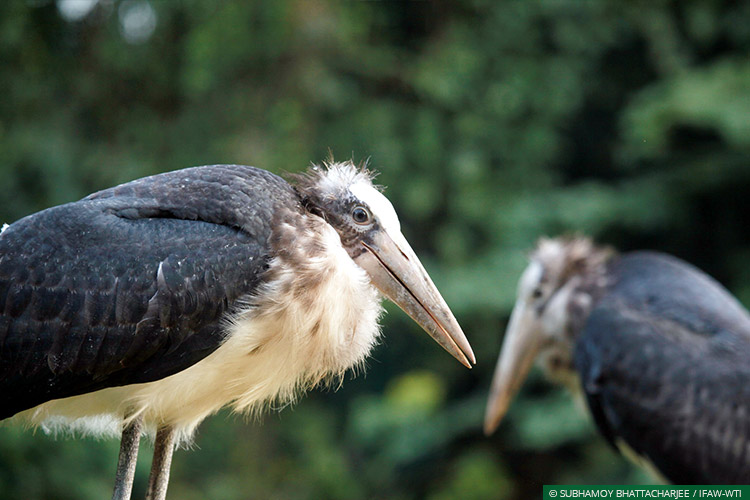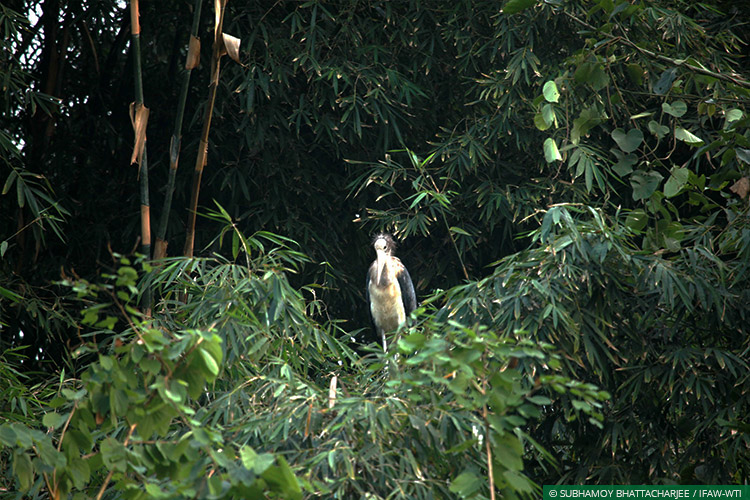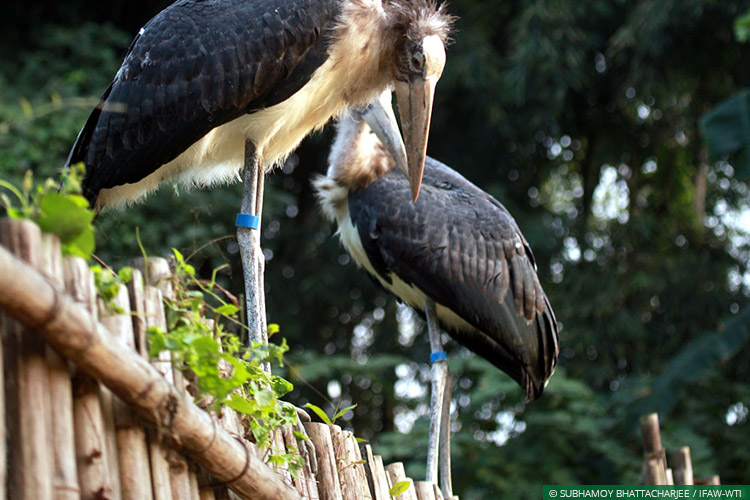




From the time they were in an enclosure to their release into the natural habitat, the storks have seen a steady development of their natural instincts
CWRC, Assam, December 30, 2017: Three juvenile lesser adjutant storks that are under care at CWRC (the Centre for Wildlife Rehabilitation and Conservation, IFAW-WTI and the Assam Forest Department’s wildlife rescue, treatment and rehabilitation facility near Kaziranga National Park) are continuing their journey towards a successful rehabilitation into the wild, reports from the field say.
The storks had been rescued as fledglings and brought to CWRC on October 9 by Green Hope, an NGO working in the Nagaon-Kaziranga landscape. “Their nest had been damaged due to tree felling in a remote area in Nagaon”, recalls Dr Panjit Basumatary, the lead veterinarian at CWRC.
While the juvenile storks are still dependent on a supply of fish from CWRC, they are increasingly trying to explore their natural habitat.
The fledglings were housed in an isolated enclosure with a makeshift nest and water body. By end November their natural instincts were already kicking in: they were able to flap down from their nest within the enclosure, stand on their feet and walk, and return to the nest. As they gradually developed their strength and began to spread their wings to fly, they were fitted with identification rings, underwent health screenings conducted by Dr Basumatary and Dr Samshul Ali, and were released from the enclosure into CWRC’s natural habitat section in the Panbari Reserve Forest on December 16.
While the juvenile storks are still dependent on a supply of fish from CWRC, they are increasingly trying to explore their natural habitat. They search for available feed during the day and have chosen a tree on the north-eastern boundary of CWRC to perch on at night, which is a good indicator that their wild instincts are developing.
“They were in a clinically compromised state when they were brought to us over two months ago”, says Dr Ali. “Proper medical attention during hand-raising and rehabilitation has seen them to this stage. Once they learn to fish and find suitable food on their own, we believe we will see them fly away to a successful life in the wild. We are patiently waiting for that day.”